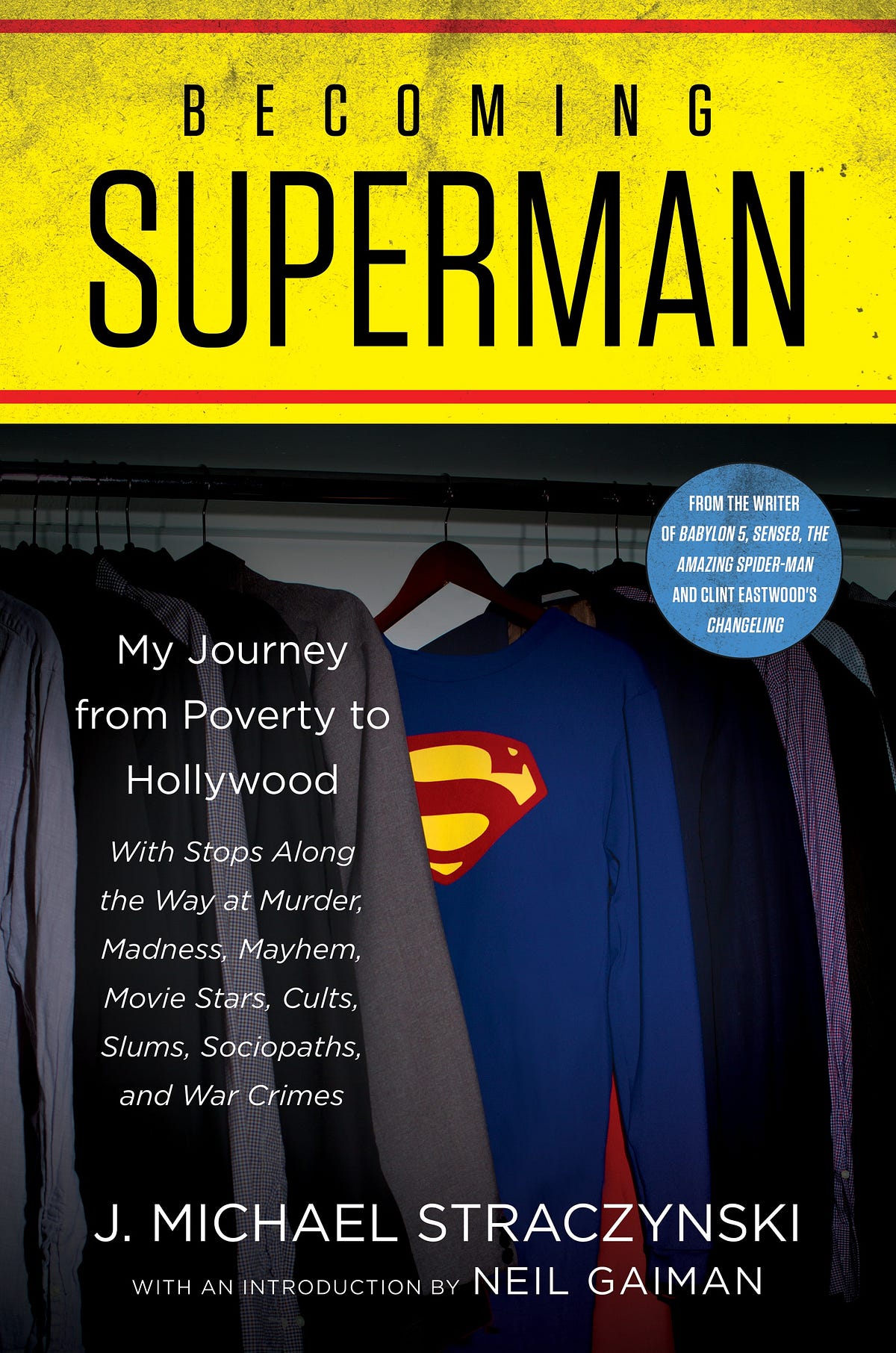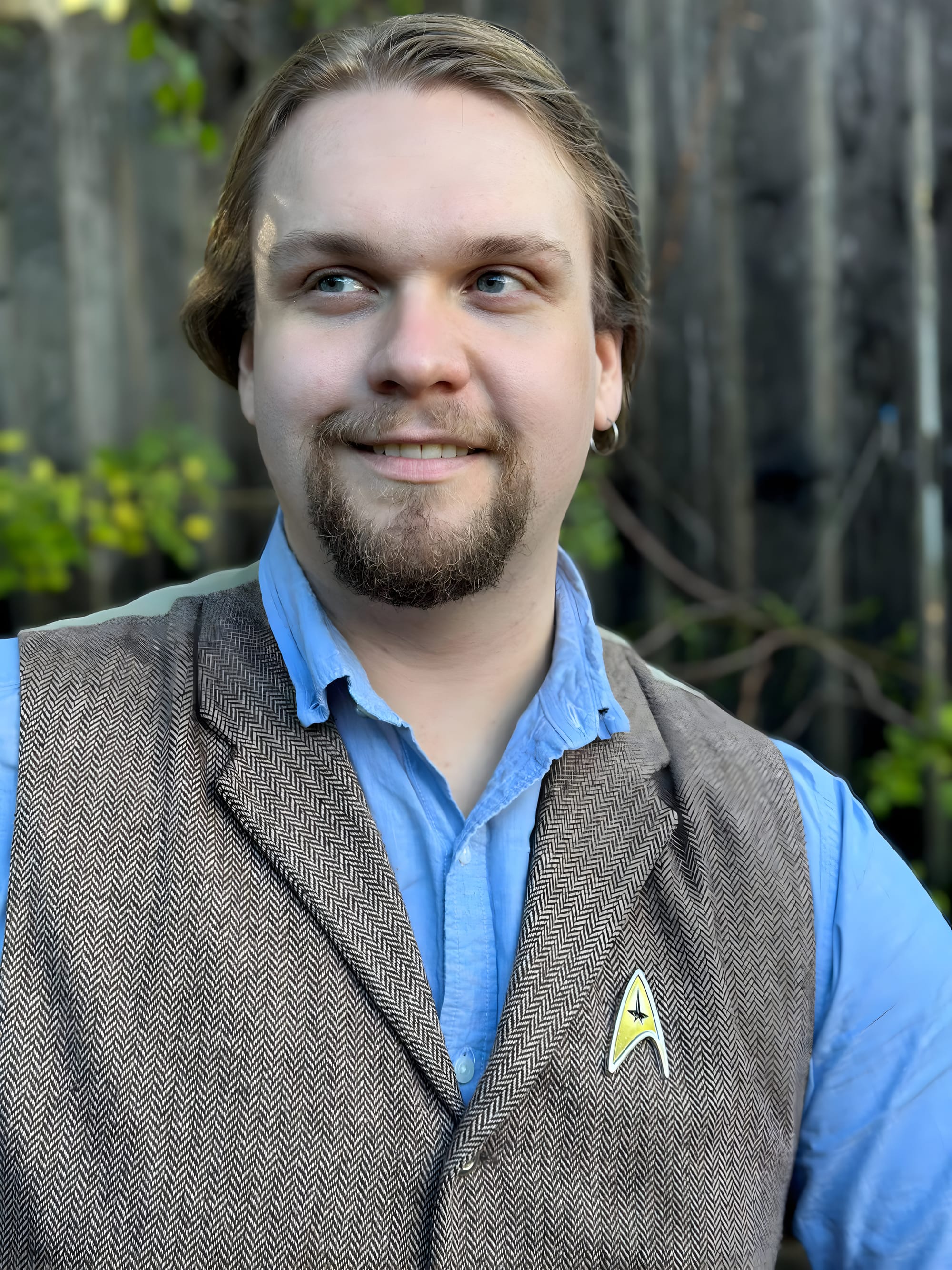And how the work of J. Michael Straczynski came into my life
The desert is an awful place to be stranded.
I was eight. My father and I were on a cross-country trip from California to Wisconsin, ostensibly to visit his family and childhood friends. We drove through the sweltering heat in a “new-to-us” car my parents purchased from a supposed-friend, a beet-red Ford Taurus (a color my dad hated).
The car got us as far as the precise middle of Nevada, flat, rubber-melting hot, and devoid of life. In one spectacular moment of surrender, the old Ford’s transmission blew straight to kingdom come, a plume of steam geysering into the air like an evil genie escaping its lamp. That was the moment we learned that the “friend” who sold my parents the car had lied about the “brand new transmission.”
For a while, I sat in the car while my dad fiddled with the overheated engine, his grumbles and curses vanishing in the burning desert air.
“Okay,” he called, “I need you to do something.”
I nodded, excited to actually play a role in our drama. At that age, it feels great when you get to help during an emergency.
“I need you to get into the driver’s seat. Then, when I tell you, turn the key and gently press down the gas pedal,” he pointed to it, “and keep the wheel straight ahead. Got that?”
I nodded. I had this.
Now, I don’t remember all the circumstances — why we had to push the car was not important at the time. What mattered was that my dad trusted me to do something important. So, I nodded and told him I understood.
“Okay,” he said. He set the car (an automatic) to “drive,” loosened the safety brake and went to the rear of the car where he started to push.
My dad was a big, bulky, Nordic man. Soon, he had the car rolling forward at a steady clip. I heard his order to turn the key and gun the gas, which I did. And, perhaps because I was excited to be playing such an important role, I pressed down the accelerator with a bit more gusto than was strictly required.
The car’s enfeebled engine sputtered to life and the Taurus accelerated away down the highway, it’s engine rumbling like a depression-era tractor. My dad, in a cloud of dust, was visible in the rear-view mirror, diminishing into the distance as he ran behind, yelling for me to stop.
I did finally get the car to slow down and my dad hopped into the still-moving car, his face blanched the color of milk as he grabbed the wheel to keep us on the road while I slid into the passenger’s seat.
We made it to a tiny hotel inexplicably built in the middle of nowhere. A dilapidated gas station and a Mexican restaurant were the hotel’s only companions. My dad, his health already not stellar in those days, barely seemed to have any energy at all. After calling home so my mom could come to pick us up with my godfather’s car — which would take a couple of days to arrange — he settled into a morose period of restlessness.
With him spiraling into an increasingly dour mood, and with the outside world little more than an overheated dust-bowl more reminiscent of Mars than Earth (barely habitable for human colonization), I wanted nothing more than to escape my situation. But, with no books and with only a few local channels available on the television, it seemed likely that the next few days would be miserable ones.
Then, something wonderful.
On one of those networks, a show called Babylon 5 appeared as we flipped through the channels. After watching it for a couple of minutes, my dad cleared it as something he thought I could watch (my parents didn’t let me watch much TV).
For the next three days, I soaked up every minute of that series I could, driving my dad to frustration with my constant pestering.
“Is it on yet? Is it on?”
Babylon 5 tells the story of a space station in the mid-twenty-third century, during a time when humanity has come into contact with alien civilizations. Built in neutral territory outside the jurisdiction of the various interstellar governments, the titular station acts as a center for peaceful diplomatic relations between cultures and governments, a sort of “galactic United Nations” center, where the races of the galaxy can work out their differences peacefully.
Brilliant science fiction — but also so much more.
Designed to run as a five-year story, with interwoven subplots, character arcs which defied the traditional norm of televised dramatic series, high-drama, and witty humor, this show had it all. It was the very first of its kind, a series which literally created the template we now take for granted as the hallmark of the television drama.
This would also be my first introduction to the work of a man named Joseph Michael Straczynski, whose life, as it turns out, is stranger (and more incredible) than fiction.
In July 2019, Straczynski released his memoir. The title of this incredible, nearly 500-page tomb is Becoming Superman: My Journey From Poverty to Hollywood. From start to finish, in the midst of my otherwise busy life, it took me just four days to read cover to cover — and I paced myself, anxious not to finish it too quickly, yet unable to let it rest untouched for very long.
It tells the story of his dark and twisted childhood experiences, his intense and sometimes violent family, and the long road of his professional writing career, with all the murky pitfalls and golden heights that it contained. It is an incredibly earnest book, witty in Straczynski’s convivial manner, and powerful for its raw sincerity. A masterful writer, Straczynski weaves multiple lines of thought through the book, offering the dramatic and the quiet moments of his life in an utterly captivating manner.
Straczynski grew up in conditions so squalid the term “poverty” hardly does it justice, and his memoir refuses to shy away from those hard realities. Abuse both psychological and physical, as well as dark, even horrific, family mysteries, permeate the pages of his memoir, painting the picture of an adolescence fraught with hardship and outright danger.
While my childhood never suffered under the sort of abuse which marked Straczynski’s, I too experienced poverty and homelessness. During those years, the incredible stories produced by Straczynski, in both Babylon 5 and in his many graphic novels, provided me with something to believe in when it seemed the whole world was falling to pieces. After reading Becoming Superman, I understand now why Straczynski’s work touched my heart in such a powerful way: he poured the whole reality of his whole emotional life into his scripts — into his characters — and, through them, I could find people who understood what was happening to me, deep down on the inside.
Becoming Superman is part personal reflection, part historical journalism, part inspirational drama. It reads like a mystery novel, pulling the reader from page to page with the narrative mastery one would expect of such an experienced storyteller. It also uses the lens of Straczynski’s personal life to showcase a stark underbelly of recent American history, as well as serving as an exposé on the political squabbling inherent to the media and entertainment industries.
By all good rights, anyone growing up with the same childhood circumstances could easily have ended up dead in the gutter or locked away in prison. And that’s what’s so incredible, because, instead of giving in, Straczynski strove to embody his hero — a fictional character who inspired him to be his best self: Superman. He refused to surrender to the evil that hemmed him in, and Straczynski soared. By connecting to his fictional hero, Straczynski found a moral center that could not be extinguished or suppressed.
That strong morality would cause Straczynski many hardships through his working life in the media and entertainment industries (there’s no room in corporatocracy for morality), yet, ultimately, this core ideology of goodness and self-betterment would catapult him to success after success against the steepest of odds… and would forever change the lives of so many of his readers and fans.
Becoming Superman is a vital and important book. Straczynski is a master writer in multiple genres, from novels to bestselling graphic novels and comics, to award-winning and Oscar-nominated films, to multiple hit television series (including Sense8, which he created alongside the Wachowski duo of The Matrix fame). Any writer serious about the art and craft should pay attention just for that. But, what Straczynski shows, through his memoir, about the power of the human spirit is even more priceless.
Straczynski’s life exists as a reminder to those of us who often feel hopeless and helpless that we can always choose to do the right thing. We might get beaten down, we might get knocked on our asses, but we can always get back up; we can always change our lives. Moreover, if we pour ourselves into our work, if we refuse to succumb to the naysayers and the people who seek to demonize us; if we stand up for what is right even in the face of terror and brutality… then maybe we can make the world around us a better place, and find a measure of fulfillment along the way.
In one episode of Babylon 5, Straczynski has a character recite a piece of Alfred Tennyson’s poem Ulysses. In it, I believe, is the core sentiment behind the work and life of the man — and also his reminder to all of us that it is in the striving toward betterment, and the refusal to surrender, that we find our truest human selves. Read the poem, then read the memoir. Trust me, it’s a game-changing ride.
“It may be that the gulfs will wash us down:
It may be we shall touch the Happy Isles,
And see the great Achilles, whom we knew.
Tho’ much is taken, much abides; and tho’
We are not now that strength which in old days
Moved earth and heaven, that which we are, we are;
One equal temper of heroic hearts,
Made weak by time and fate, but strong in will
To strive, to seek, to find, and not to yield.”

